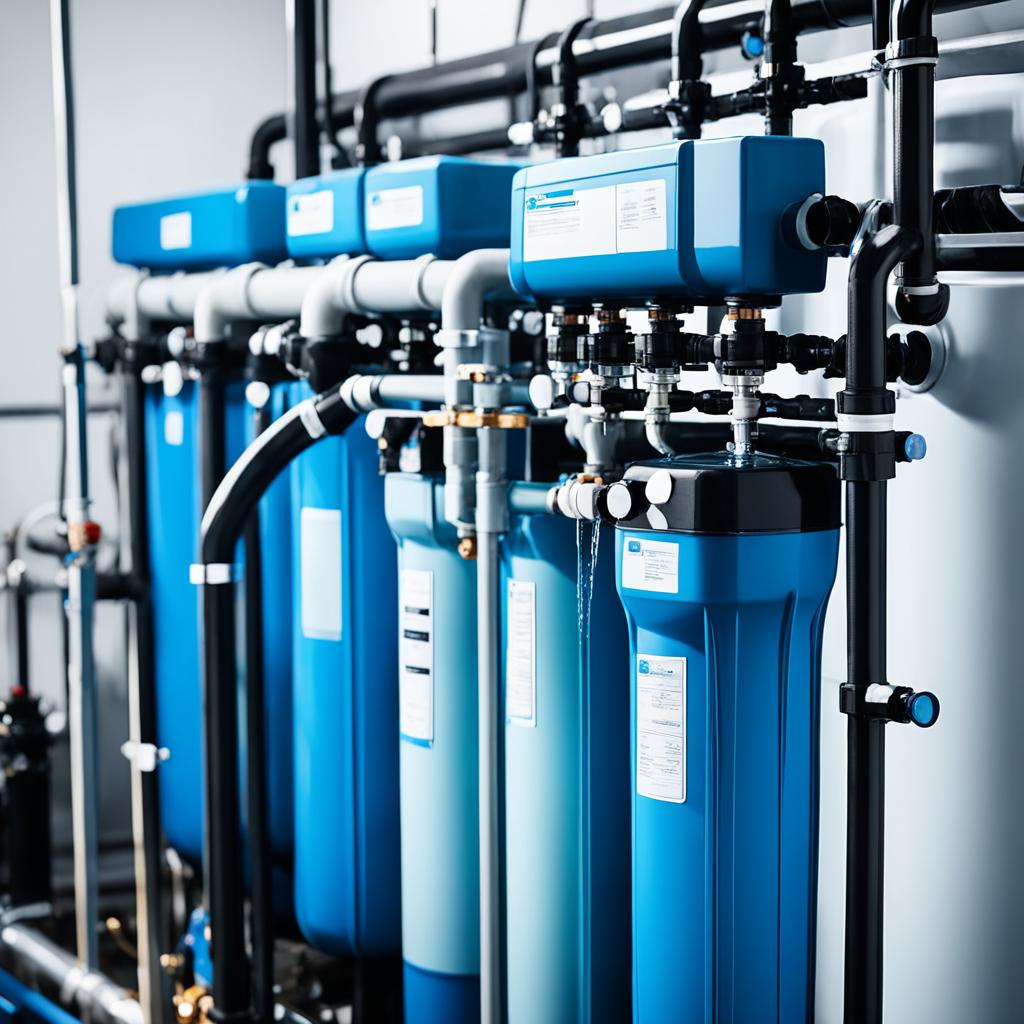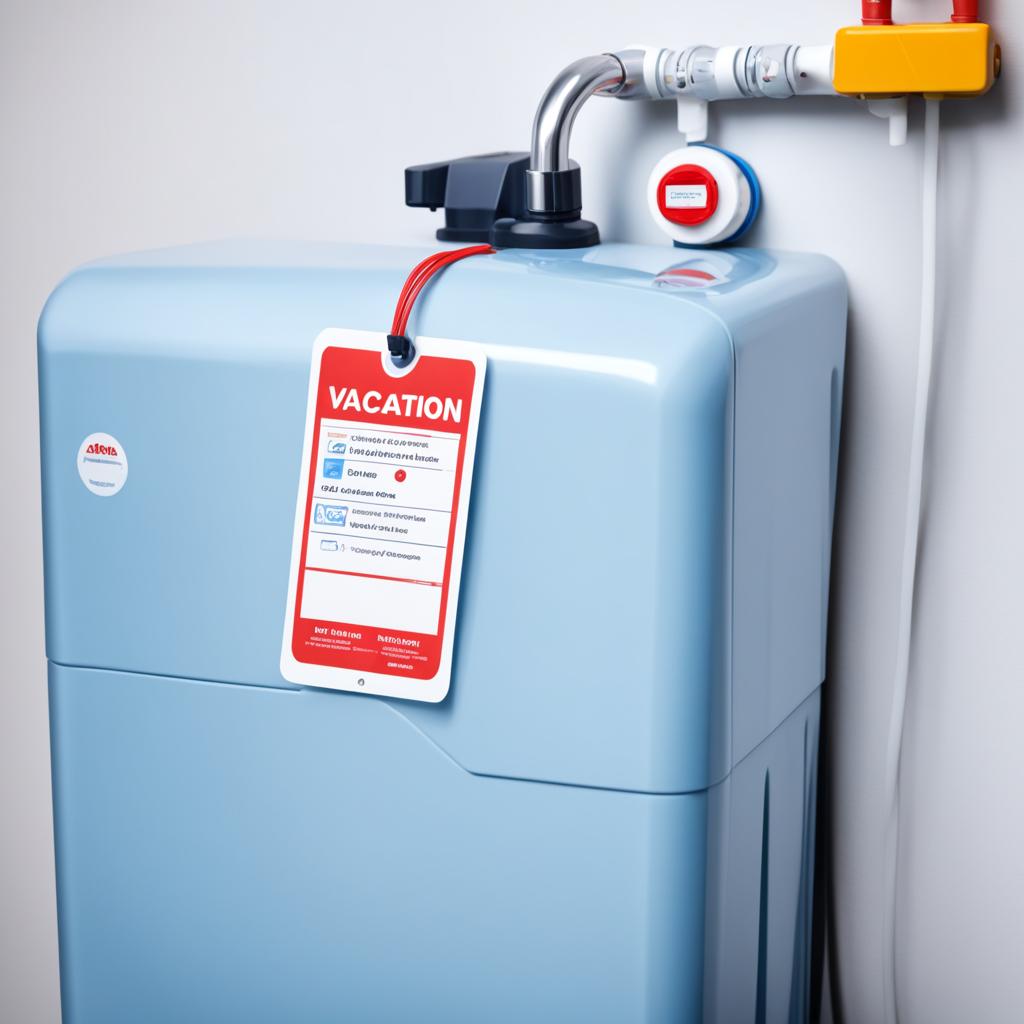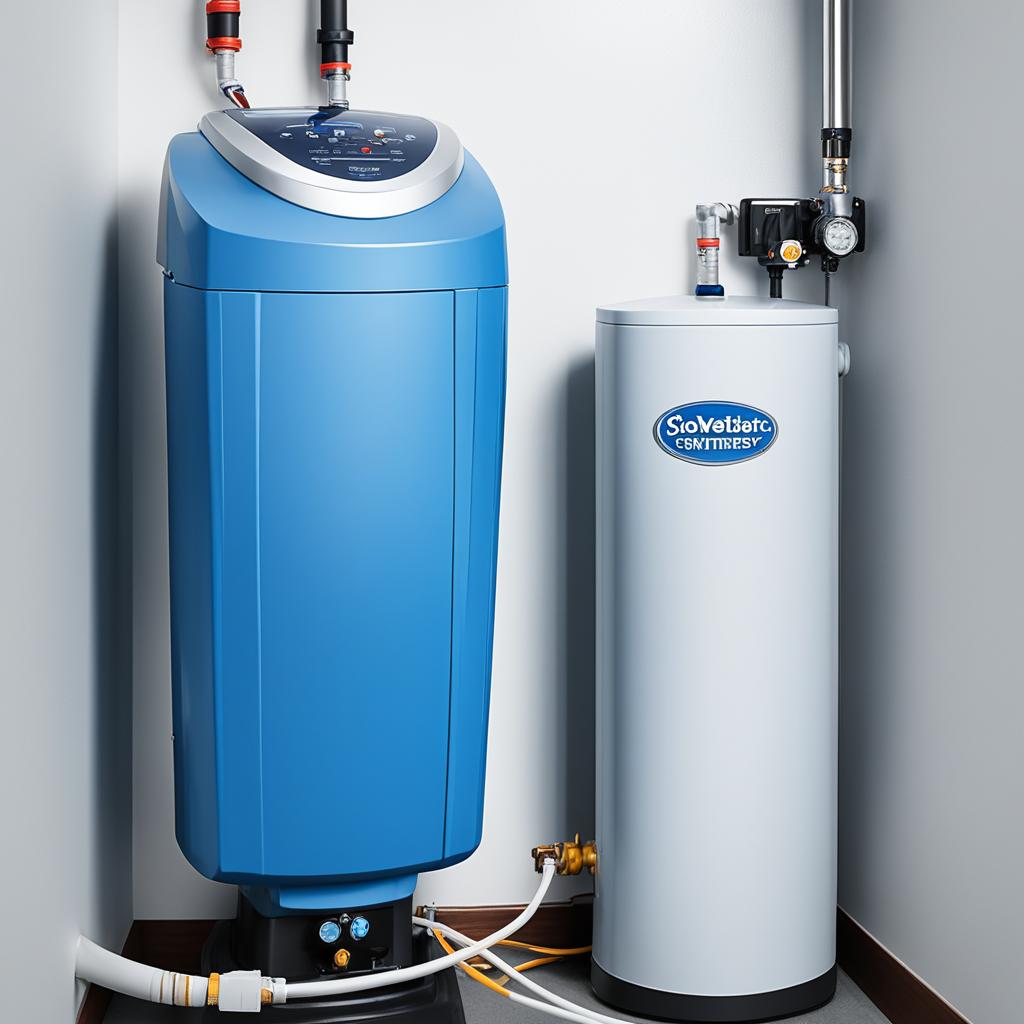Planning a vacation is exciting, but it also brings up important questions about your home appliances. When it comes to your water softener, should you leave it running or unplug it while you’re away? The answer may surprise you.
Many people assume that it’s safe to leave their water softener running even when they’re on vacation. After all, it’s just a small appliance tucked away in a corner, right? But the truth is, leaving your water softener running when you’re not home can actually cause more harm than good.
Not only can running your water softener without water damage the system, but it can also lead to potentially costly repairs. And let’s face it, no one wants to come back from a relaxing vacation to deal with unexpected household issues.
So, is it worth the risk? Or should you take the simple step of unplugging your water softener before you embark on your vacation?
In this article, we’ll explore the reasons why it’s generally recommended to turn off your water softener when going on vacation. We’ll also dive into how water softeners work and discuss the different types of systems that may affect your decision. Plus, we’ll provide you with step-by-step instructions on how to turn off your water softener and handle it properly for long vacations.
So, before you head out on your next adventure, let’s find out the truth about whether you should unplug your water softener when you go on vacation. Prepare to be surprised, informed, and empowered to make the best decision for your home and save energy and avoid potential issues.
How Does a Water Softener Work?

A water softener is a filtration system that removes hard water minerals, such as calcium and magnesium, and replaces them with sodium. Hard water is classified based on the amount of dissolved calcium and magnesium it contains. When hard water enters the water softener unit, the minerals attach themselves to resin beads saturated with sodium. This process effectively softens the water by replacing the hard minerals with sodium.
If you’re wondering how this process actually works, here’s a step-by-step breakdown:
- The hard water enters the water softener unit through the main water supply pipe.
- The water flows into a tank filled with resin beads.
- The resin beads are coated with negative sodium ions.
- As the water passes through the resin beads, the hard water minerals, which are positively charged, are attracted to the negatively charged sodium ions.
- The hard water minerals attach themselves to the resin beads, while the sodium ions are released into the water.
- The softened water flows out of the water softener and into your plumbing system, ready for use.
By removing the hard water minerals and replacing them with sodium, a water softener helps to prevent the negative effects of hard water, including limescale buildup, soap scum, and dull-looking hair and skin.
It’s important to note that the amount of sodium added to the water depends on the hardness of your water and the regeneration settings of your water softener. Some people may choose to install additional filtration systems to remove excess sodium from the softened water if they have specific dietary or health concerns.
| Benefits of a Water Softener | Drawbacks of a Water Softener |
|---|---|
|
|
Now that you understand how a water softener works, you can make an informed decision about whether or not it’s the right solution for your home. The benefits of softer water are undeniable, but it’s important to weigh them against the potential drawbacks and consider your specific needs and preferences.
Should You Turn off Your Water Softener When Away?
When planning a vacation, it’s important to consider whether you should turn off your water softener while you’re away. The answer to this question largely depends on the type of system you have installed in your home. Let’s take a closer look at the differences between a metered system and a timed system, and how they affect the need to turn off your water softener.
Metered System
If you have a metered system, you’re in luck! This type of water softener regenerates based on your water usage. The system measures the amount of water passing through and automatically triggers the regeneration process when it’s necessary. With a metered system, there is no need to turn off your water softener when you’re away. It will only regenerate when water is being used, ensuring efficient operation and no wastage.
Timed System
On the other hand, if you have a timed system, it’s generally recommended to turn off your water softener when you’re away for an extended period of time. A timed system operates on a predetermined schedule, regenerating at specific intervals, regardless of water usage. If the regeneration process occurs without water, it can lead to issues and potential damage to the unit.
To avoid these problems, it’s best to turn off your water softener if you have a timed system. This simple step can help prevent unnecessary regeneration and safeguard the longevity of your water softener.
Remember, if you’re unsure about the type of system you have or how to turn off your water softener, consult your owner’s manual for specific instructions. It’s important to follow the recommended steps to ensure your water softener is properly handled while you’re away.
Next, we’ll explore how to turn off a water softener when you’re going on vacation. Stay tuned!
How to Turn off a Water Softener When on Vacation?

When going on vacation, it is important to properly turn off your water softener to avoid any issues and save energy. Follow these steps to ensure that your water softener is safely turned off:
- Step 1: Locate the bypass valve
- Step 2: Turn off the bypass valve
- Step 3: Unplug the machine
- Step 4: Shut off the main valve to your home
To start, locate the bypass valve on your water softener. The bypass valve is usually located on the back or side of the unit. Once you have found it, turn off the valve by rotating it clockwise until it is fully closed.
Next, unplug the machine from the power source. This will ensure that the water softener is completely turned off and not using any energy while you are away.
Lastly, shut off the main valve to your home to prevent any water from entering your water softener. This step is important as it will prevent any potential leaks or damage to the unit while you are on vacation.
| Step | Description |
|---|---|
| Step 1 | Locate the bypass valve |
| Step 2 | Turn off the bypass valve |
| Step 3 | Unplug the machine |
| Step 4 | Shut off the main valve to your home |
By following these simple steps, you can confidently turn off your water softener and enjoy your vacation without worrying about any water softener issues.
Handling Your Water Softener for Long Vacations
If you’re planning to go on a long vacation and need to shut off your water, it is essential to take proper care of your water softener. Follow these steps to ensure that your water softener remains in good condition while you’re away.
If your vacation will be shorter than four weeks, you can manually initiate a regeneration cycle just before shutting off your water. This process will clean the resin bed and prepare your water softener for the period of inactivity.
However, if you’ll be gone for more than a month, it is recommended to perform a more thorough cleaning process. Force a regeneration cycle to clean the resin bed and then interrupt the regeneration process to “pickle” the resin.
Pickling the resin involves filling the tank with a brine solution. This step helps to protect the resin bed and maintain its effectiveness. By pickling the resin, you ensure that it remains in optimal condition during your long absence.


